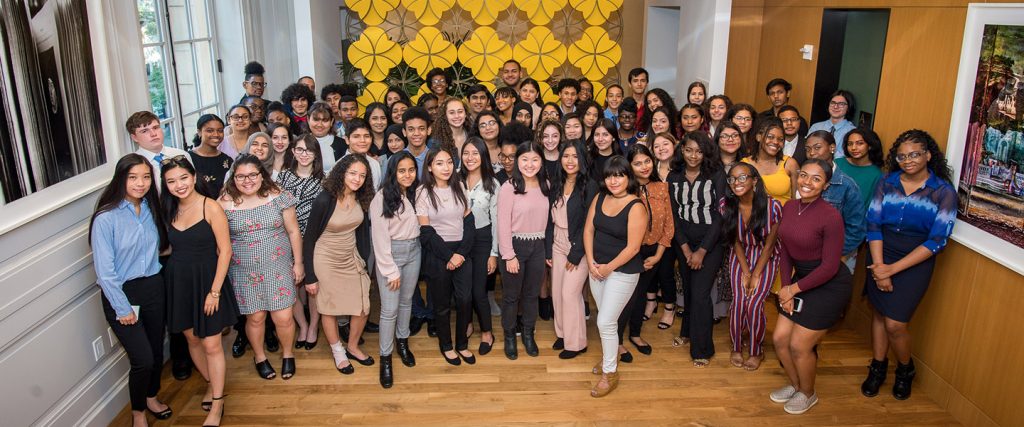Skills for the Future Workforce

By Anita Contini, Bloomberg Philanthropies Arts team
As the internship and summer job season begins, many students have been thinking about the best choice to enhance their resumes, gain experience and build meaningful relationships with professionals. The conversation in education and professional circles often becomes an either or scenario between the science and the arts – the corporate or the creative road. The truth is, it does not need to be so stark a choice.
Of course there is much to be said for the importance of science, technology, engineering and math (STEM) when preparing students for today’s workforce. Particularly with the rise of AI and machine-learning, countless studies underscore the projected growth of jobs in the technology sector, and there is a rising movement advocating for an increased focus on STEM in schools. But the creative road also offers core skills.
Early arts experiences helps students develop “soft skills” that employers greatly value. According to research by Arts Education Partnership, students who participate in the arts have an increased capacity for leadership and develop important skills to help them succeed in higher learning as well as the workplace – including problem solving, collaboration, and communications.
U.S. employers rate creativity as one of the top three personality traits most important to career success, according to 2015 data from Americans for the Arts. The same study found that while 72 percent of employers say creativity is a primary concern when hiring, 85 percent of these employers also say that they struggle to find the creative applicants they seek.
To help prepare the next generation for success in the workforce, be it in the arts or other industries, Bloomberg Philanthropies launched the Bloomberg Arts Internship (BAI) program in 2012. BAI connects rising high school seniors with paid summer internships at cultural organizations in New York City, Philadelphia, Baltimore and Boston.
The program introduces students to the diversity of career opportunities in the thriving cultural sector, a driver of economic growth contributing $763.3 billion to the U.S. economy annually. We also focus on work readiness by helping interns refine their oral and written communication skills, and on promoting civic engagement through exploration of the cultural assets in their cities.
As Anant Agarwal, CEO of digital learning provider edX, notes in Forbes, “The term ‘soft skills’ is a misnomer. Critical thinking, persuasive writing, communications and team work are not fluffy, nice-to-have value adds. They’re hard-won and rigorously maintained abilities that are better referred to as ‘power skills’.” Given this landscape, the arts and culture sector is a resource for valuable skill development that is closely tied to future employment.
Incorporating the arts sector into conversations about workforce development, we can lay a foundation of innovation and creativity to support the next generation of workers in school, employment and life.